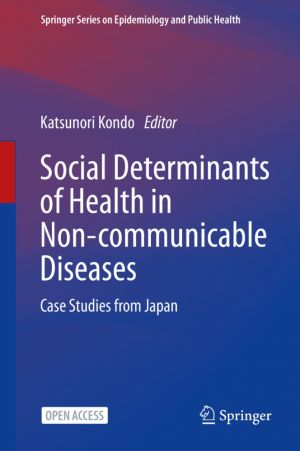
This open book is the first compilation that reviews a wide range of social determinants of health (SDHs) for non-communicable diseases (NCDs) and healthy ageing in Japan. With the highest life expectancy and the largest elderly population in the world, Japan has witnessed health inequality by region and social class becoming more prevalent since t...

Academic Success is designed to help students on their university journey. It is divided into four parts, each reflecting different aspects of a student's tertiary experience. Part A: Successful Beginnings addresses what it is like to be a new student at an Australian university. Part B: Successful Foundations introduces basic skills in Englis...

Coping is a collection of philosophical essays on how we deal with life's challenges. We hope for better times, but what is hope, and is it a good thing to hope? How do we look back and make sense of our lives in the face of death? What is the nature of love, and how do we deal with its hardships? What makes for a genuine apology, and is there...

In Horos, Thea Potter explores the complex relationship between classical philosophy and the 'horos', a stone that Athenians erected to mark the boundaries of their marketplace, their gravestones, their roads and their private property. Potter weaves this history into a meditation on the ancient philosophical concept of horos, the foundat...

When most people think of piracy, they think of Bittorrent and The Pirate Bay. These public manifestations of piracy, though, conceal an elite worldwide, underground, organized network of pirate groups who specialize in obtaining media - music, videos, games, and software - before their official sale date and then racing against one another to rele...

Papua New Guinea (PNG), a nation of now almost nine million people, continues to evolve and adapt. While there is no shortage of recent data and research on PNG, the two most recent social science volumes on the country were both written more than a decade ago. Since then, much has changed and much has been learnt. What has been missing is a volume...

This book provides novel and in-depth perspectives on evaluating environment and sustainability issues in developing countries. Evaluating Environment in International Development focuses on the approaches and experiences of leading international organizations, not-for-profits, and multilateral and bilateral aid agencies to illustrate how systemati...

Since the revival of maggot therapy in Western wound care approximately thirty years ago, there has been no comprehensive synthesis of what is known about its clinical practice, supply chain management, and social dimensions. This edited volume fills the information vacuum and, importantly, makes the current state of knowledge freely accessible. It...

Complementing Who Saved the Parthenon? this companion volume sets aside more recent narratives surrounding the Athenian Acropolis, supposedly 'the very symbol of democracy itself', instead asking if we can truly access an ancient past imputed with modern meaning. And, if so, how?
In this book William St Clair presents a reconstructed u...

What does it mean to be a scientist working today; specifically, a scientist whose subject matter is human life? Scientists often overstate their claim to certainty, sorting the world into categorical distinctions that obstruct rather than clarify its complexities. In this book Daniel Nettle urges the reader to unpick such distinctions - biological...

Introduction to Philosophy provides an overview of a common range of philosophical topics for a first- or second-year general education philosophy course. It is organized thematically, following the principal categories of academic philosophy (logic, metaphysics, epistemology, theories of value, and history of philosophy). A recurring theme of Intr...

This book is an introduction to the language of systems biology, which is spoken among many disciplines, from biology to engineering. Authors Thomas Sauter and Marco Albrecht draw on a multidisciplinary background and evidence-based learning to facilitate the understanding of biochemical networks, metabolic modeling and system dynamics.
Their pe...

This book is an introduction to the language of systems biology, which is spoken among many disciplines, from biology to engineering. Authors Thomas Sauter and Marco Albrecht draw on a multidisciplinary background and evidence-based learning to facilitate the understanding of biochemical networks, metabolic modeling and system dynamics.
Their pe...
